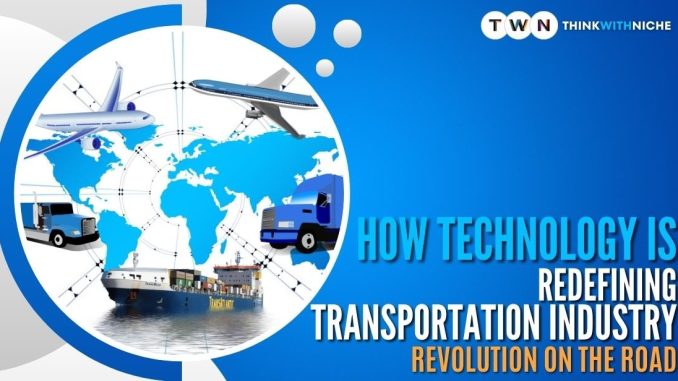
Technology is fundamentally reshaping the travel industry, not just in how people book flights or find hotels, but in how they experience destinations, interact with service providers, and manage their journeys from start to finish. The shift is not merely about digitizing old processes—it’s about reimagining the entire travel ecosystem to be more responsive, personalized, and efficient. For businesses operating in this space, the implications are profound, touching everything from customer engagement and operational logistics to data strategy and competitive positioning.
One of the most visible changes is the rise of mobile-first travel experiences. Smartphones have become the central hub for planning, booking, and navigating trips. Travelers can now research destinations, compare prices, reserve accommodations, and even check in for flights—all from a single device. This level of convenience has raised expectations across the board. Companies that once relied on traditional booking channels have had to pivot quickly, investing in mobile apps and responsive websites that offer seamless, intuitive interfaces. The emphasis is no longer just on availability but on user experience, with features like real-time updates, digital boarding passes, and location-based recommendations becoming standard.
Artificial intelligence is playing a growing role in enhancing personalization. Travel platforms are using AI to analyze user behavior and preferences, offering tailored suggestions that go beyond generic itineraries. A frequent business traveler might receive recommendations for hotels with reliable Wi-Fi and flexible check-in policies, while a leisure traveler could be shown curated experiences based on past interests. Chatbots powered by natural language processing are also transforming customer service, providing instant support and reducing the need for human intervention in routine inquiries. These tools not only improve efficiency but also create a sense of attentiveness that builds customer loyalty.
The integration of big data has enabled companies to make smarter decisions and deliver more relevant offerings. Airlines, for example, use predictive analytics to optimize pricing and manage capacity, adjusting fares dynamically based on demand patterns and booking behavior. Hotels analyze occupancy trends and guest feedback to refine services and target promotions. Even destination marketing organizations are leveraging data to understand traveler demographics and craft campaigns that resonate with specific audiences. This data-driven approach allows businesses to be more agile, responding to shifts in consumer behavior and market conditions with precision.
Virtual reality and augmented reality are beginning to influence how travelers explore and choose destinations. VR tours allow users to experience a hotel room, museum, or scenic location before committing to a booking. AR apps enhance on-the-ground experiences by overlaying historical facts, navigation cues, or language translations onto the physical environment. These technologies add depth and context to travel, making it more immersive and informative. For travel brands, they offer new ways to engage customers and differentiate their offerings in a crowded marketplace.
Automation is streamlining operations behind the scenes. From baggage handling systems at airports to automated check-in kiosks at hotels, technology is reducing friction and freeing up staff to focus on higher-value tasks. In the airline industry, automated scheduling and maintenance systems help ensure safety and punctuality. In hospitality, smart room controls allow guests to adjust lighting, temperature, and entertainment with voice commands or mobile apps. These efficiencies not only improve the customer experience but also contribute to cost savings and operational resilience.
The sharing economy, enabled by digital platforms, has introduced new dynamics into the travel landscape. Services like Airbnb and rideshare apps have expanded the range of options available to travelers, challenging traditional providers to innovate and adapt. This shift has also empowered individuals to become service providers themselves, creating micro-entrepreneurial opportunities and diversifying the supply side of the industry. For established businesses, the challenge is to integrate the flexibility and personalization of these platforms while maintaining brand consistency and quality control.
Sustainability is another area where technology is driving change. Travelers are increasingly conscious of their environmental impact, and tech solutions are helping them make more informed choices. Apps that track carbon footprints, platforms that highlight eco-friendly accommodations, and digital tools that promote off-peak travel are all contributing to a more responsible travel culture. Businesses are using technology to monitor resource usage, reduce waste, and communicate their sustainability efforts transparently. This alignment between values and operations is becoming a key differentiator in a market where ethics matter as much as price.
Security and health considerations have taken on new urgency, especially in the wake of global disruptions. Digital health passports, contactless payment systems, and real-time safety alerts are helping travelers navigate a more complex landscape. Technology enables rapid response to changing conditions, whether it’s rerouting flights due to weather or updating entry requirements based on health advisories. For travelers, this means greater confidence and control. For businesses, it means building systems that are not only robust but also adaptable.
Ultimately, technology is not just changing how people travel—it’s changing what travel means. It’s shifting the focus from logistics to experience, from standardization to personalization, and from reactive service to proactive engagement. For companies in the travel industry, embracing this transformation is not optional—it’s essential. Those that leverage technology to create meaningful, frictionless, and responsive experiences will be best positioned to thrive in a landscape that is as dynamic as the journeys it supports. As innovation continues to unfold, the travel industry will remain one of the most exciting arenas for digital reinvention.